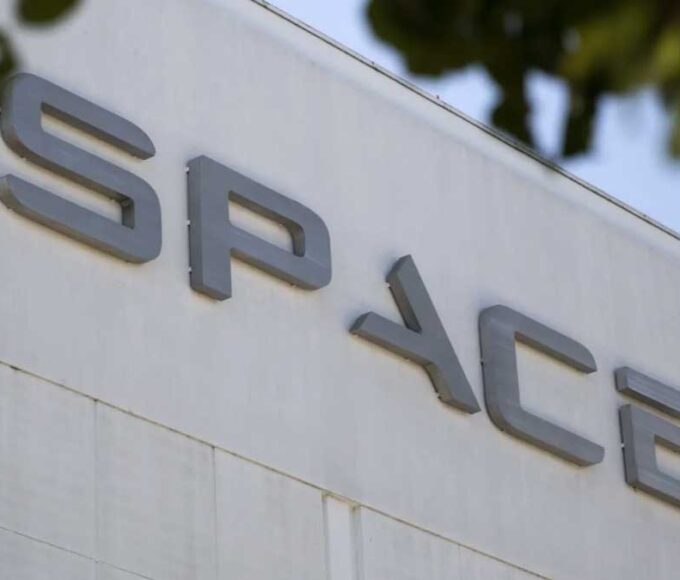- Home
- Billionaires
- Investing Newsletters
- 193CC 1000
- Article Layout 2
- Article Layout 3
- Article Layout 4
- Article Layout 5
- Article Layout 6
- Article Layout 7
- Article Layout 8
- Article Layout 9
- Article Layout 10
- Article Layout 11
- Article Layout 12
- Article Layout 13
- Article Layout 14
- Article Sidebar
- Post Format
- pages
- Archive Layouts
- Post Gallery
- Post Video Background
- Post Review
- Sponsored Post
- Leadership
- Business
- Money
- Small Business
- Innovation
- Shop
Recent Posts
SpaceX’s Polaris Dawn: Historic Private Space Mission

Early Tuesday morning, SpaceX marked a historic milestone with the successful launch of the Polaris Dawn mission, a groundbreaking private spaceflight. This mission, which set off at 5:23 a.m. EDT from NASA’s Kennedy Space Center in Florida, is notable for its ambitious goals and high-profile crew. Among the four astronauts on board is Jared Isaacman, a 41-year-old U.S. entrepreneur and billionaire, who is joined by Scott Poteet, a retired U.S. Air Force pilot, and SpaceX engineers Anna Menon and Sarah Gillis.
The launch was initially scheduled for August 28 but faced a nearly two-hour delay on Tuesday due to adverse weather conditions at the launch site. Despite these setbacks, the Falcon 9 rocket successfully propelled the Crew Dragon spacecraft into orbit, marking a significant achievement for both SpaceX and private space exploration.
The Polaris Dawn mission is designed to break new ground in several areas. Its most notable objective is to accomplish the first-ever private spacewalk. This spacewalk is set to occur on the third day of the mission and will involve Isaacman and Gillis each spending approximately 15 minutes outside the spacecraft. This historic event aims to test SpaceX’s newest extra-vehicular activity (EVA) suits, which have been engineered for greater flexibility and are intended for use in future missions. The EVA suits represent a critical advancement in the technology necessary for extended operations outside spacecraft, which is essential for future deep-space exploration.
In addition to the spacewalk, Polaris Dawn is set to achieve another major milestone by becoming the furthest crewed mission from Earth since NASA’s Apollo moon missions. At its maximum altitude, the Polaris Dawn mission will reach an impressive height of 870 miles above Earth, surpassing the previous record held by NASA’s 1966 Gemini XI mission, which orbited at 853 miles. This achievement not only demonstrates the capability of current private spaceflight technology but also sets a new benchmark for non-lunar missions.
The Polaris Dawn mission represents a significant step forward for SpaceX and the broader space exploration community. By reaching new heights and pushing the boundaries of private space missions, SpaceX is not only expanding its own horizons but also paving the way for future commercial space endeavors. The successful execution of this mission could open doors to more ambitious private spaceflights, including potential missions to deeper parts of the solar system and beyond.
The mission’s objectives reflect SpaceX’s ongoing commitment to innovation and its drive to make space more accessible. With each new mission, the company is steadily advancing its technology and pushing the limits of what is possible in space exploration. The Polaris Dawn mission, with its focus on private spacewalks and high-altitude crewed flights, is a testament to this commitment and a glimpse into the future of commercial space travel.
As the crew of Polaris Dawn embarks on this historic journey, the space community and the public eagerly anticipate the outcomes of their mission. The results of the spacewalk and the mission’s overall success will not only highlight the progress made by private spaceflight companies but also inspire future generations of space enthusiasts and professionals.
In conclusion, SpaceX’s launch of the Polaris Dawn mission with Jared Isaacman and his team marks a landmark event in the history of private space exploration. By achieving unprecedented milestones such as the first private spacewalk and surpassing previous altitude records, the mission underscores the rapid advancements being made in space technology and the growing role of private enterprises in shaping the future of space travel. As the mission progresses, it will undoubtedly be closely watched by both industry experts and the general public, eager to see the next chapter in the evolving story of space exploration.
Recent Posts
Categories
- 193cc Digital Assets2
- 5G1
- Aerospace & Defense46
- AI37
- Arts3
- Banking & Insurance11
- Big Data3
- Billionaires426
- Boats & Planes1
- Business328
- Careers13
- Cars & Bikes76
- CEO Network1
- CFO Network17
- CHRO Network1
- CIO Network1
- Cloud10
- CMO Network18
- Commercial Real Estate7
- Consultant1
- Consumer Tech180
- CxO1
- Cybersecurity68
- Dining1
- Diversity, Equity & Inclusion4
- Education7
- Energy8
- Enterprise Tech29
- Events11
- Fintech1
- Food & Drink2
- Franchises1
- Freelance1
- Future Of Work2
- Games141
- GIG1
- Healthcare78
- Hollywood & Entertainment186
- Houses1
- Innovation42
- Investing2
- Investing Newsletters4
- Leadership65
- Lifestyle11
- Manufacturing1
- Markets20
- Media193
- Mobile phone1
- Money13
- Personal Finance2
- Policy567
- Real Estate1
- Research6
- Retail1
- Retirement1
- Small Business1
- SportsMoney33
- Style & Beauty1
- Success Income1
- Taxes2
- Travel10
- Uncategorized8
- Vices1
- Watches & Jewelry2
- world's billionaires395
Related Articles
Universe Expanding Faster Than Expected, New Data Shows
Recent findings from the James Webb Space Telescope (JWST) have confirmed something...
By 193cc Agency CouncilDecember 10, 2024Russian Soldier Life Expectancy: One Month Amid Losses
In the ongoing war between Russia and Ukraine, a stark reality faces...
By 193cc Agency CouncilNovember 29, 2024Trump Joins Elon Musk for SpaceX Starship Test Flight
President-elect Donald Trump is expected to attend the latest launch of SpaceX’s...
By 193cc Agency CouncilNovember 19, 2024SpaceX Launches Dragon to Rescue Stranded Astronauts
SpaceX’s Dragon spacecraft launched successfully from Cape Canaveral, Florida, on Saturday afternoon,...
By 193cc Agency CouncilSeptember 28, 2024















Leave a comment